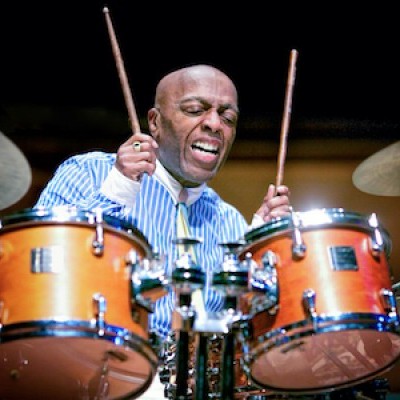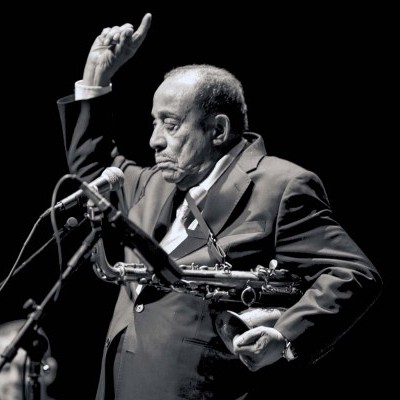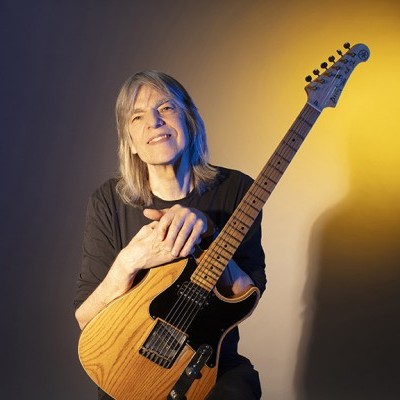Nov 19, 2024 12:57 PM
In Memoriam: Roy Haynes, 1925–2024
Powerhouse jazz drummer and bandleader Roy Haynes died Tuesday in Nassau County, New York. He was 99. One of the few…
For a greater appreciation of Rushen’s musical breadth, exploring her work before and after her seven-year stint at Elektra displays a fascinating trajectory, marked by intriguing twists and turns—and guided by an early aspiration to work in film and TV. Before working with Elektra, Rushen landed a three-record deal with Prestige, following her participation in a band competition at the 1972 Monterey Jazz Festival. Rushen recalls not being overly interested in signing with a label, but took advantage of the opportunity to help pay for college, where she majored in music education and minored in classical piano.
Drummer and educator Terri Lyne Carrington said Rushen’s ’70s soul-jazz material is so durable because of a well-rounded understanding of music history: “She’s done her homework to understand how black American music progressed from blues and spirituals to its other modern variations. Growing up in the late 1960s or early 1970s, r&b was strong, but jazz was still quite strong. She had enough talent to excel at playing jazz in high school, but she never gave up her love for r&b.”
Prestige released Rushen’s enchanting debut, Prelusion, in 1974. It boasted her extraordinary gifts as an improviser, composer and arranger, as she led an octet that included tenor saxophonist Joe Henderson and drummer Leon “Ndugu” Chancler through a set of originals. Rushen’s impressionistic harmonies and intricate arrangements revealed a maturity well beyond her 20 years, as well as a strong affinity for Herbie Hancock. That album and portions of her 1975 sophomore LP, Before The Dawn, resemble Hancock’s late-Blue Note recordings, Speak Like A Child and The Prisoner, in terms of the dark, evocative horn arrangements. Before The Dawn also documented her exploration of synthesizers and the sly insinuation of r&b, particularly on the vocals-heavy “What’s The Story.” Her third Prestige LP, 1977’s Shout It Out, would pick up on those jazz-funk explorations for the rare-groove classics “Let There Be Funk” and “The Hump.”
“Herbie Hancock was one of the first people that I just completely identified with,” Rushen said, “because of his technique, tone production, sense of harmony and the collaborative voice that you could always hear in his music. He always left room in his music to be able to respond to whatever unexpected moment would occur.”
Concurrently, Rushen put in time working on others’ sessions. After she played on Ponty’s 1975 Upon The Wings Of Music, the violinist was so taken by her musical prowess that he wanted her to join his touring band. She didn’t accept on the urging of her parents to finish college.
“Patrice’s feel, improvisations and handling of chord changes were just right for my music,” Ponty recently recalled. “Also, she was experimenting with all the new keyboards at the time. She demonstrated so much musical intelligence. She was a great sight-reader who could handle complex arrangements with odd time signatures. But her playing wasn’t just intellectual, she was able to go into that next dimension, which is the emotional approach to music.”
Rushen’s agility with synthesizers and electric piano also helped elevate Eddie Henderson’s 1976 album Heritage to classic status.

“I treat every day like it’s Thanksgiving,” said Roy Haynes.
Nov 19, 2024 12:57 PM
Powerhouse jazz drummer and bandleader Roy Haynes died Tuesday in Nassau County, New York. He was 99. One of the few…

John McLaughlin likened his love for the guitar to the emotion he expressed 71 years ago upon receiving his first one. “It’s the same to this day,” he said.
Nov 7, 2024 2:17 PM
In the aftermath of World War II, the deprivations felt throughout the United Kingdom were particularly acute in John…

Lou Donaldson was one of the originators of the hard bop movement in jazz back in the 1950s.
Nov 12, 2024 12:12 PM
Alto saxophonist Lou Donaldson, the final surviving member of the original Art Blakey quintet that in 1954 introduced…

“Watching people like Max Roach or Elvin Jones and seeing how they utilize the whole drum kit in a very rhythmic and melodic way and how they stretched time — that was a huge inspiration to me,” Hussain said in DownBeat.
Dec 17, 2024 9:58 AM
Tabla master Ustad Zakir Hussain, one of India’s reigning cultural ambassadors and a revered figure worldwide…

“I love doing ballads,” Mike Stern says. “It’s just a part of me, some part of emotionally how I feel sometimes.”
Dec 3, 2024 12:52 PM
Stories of major shifts and rebirths among musicians during the past five years are common, from weathering the…